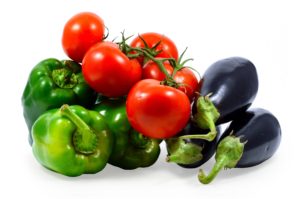
Tomatoes and eggplants, for example, contain phytonutrients, which are highly beneficial for your health. On the other hands, nightshades also contain alkaloids that are naturally occurring pesticides. Alkaloids prevent insects from eating the plants, but are they safe for human consumption? Some people don’t think so, and there is a growing number of people who avoid nightshade foods altogether as they fear inflammation.
For some individuals, consuming nightshades can lead to digestion issues or worsen already existing health problems. But some people experience these issues while others don’t. Nutritionists and dieticians suggest if you already have a condition which promotes inflammation, like inflammatory bowel disease or arthritis, then it may be wise to omit nightshades from your diet.
Because alkaloids are toxic, some experts suggest that consuming 200 to 400 mg of nightshade foods is enough to trigger symptoms including nausea, diarrhea, vomiting, headaches, dizziness, or irregular heartbeat. Although that may be worrisome, it is near impossible to consume that many alkaloids. Out of all the nightshades, potatoes carry the highest number of alkaloids, and even still, you’d need to consume a lot of potatoes.
But the question remains, should you avoid nightshades? Many of the foods that fall into the nightshade family are healthy and provide you with plenty of essential nutrients. Instead of going cold turkey and omitting all nightshades, it may be wise to keep a food journal to document how you feel when consuming certain foods.




